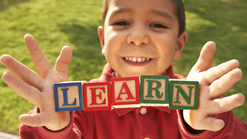BIST Model & Concepts
THE BIST MODEL - PROVIDING WHAT STUDENTS NEED
- Early Intervention (When)
Utilizing the expectations that it's never okay to be disruptive or hurtful allows adults to intervene consistently with all students. A student will be asked one time per activity to stop a behavior that is disruptive or hurtful. Adults will intervene in a quick, kind, calm and firm manner if a student cannot meet this expectation.
- Caring Confrontation (How)
Caring Confrontation is a language of partnership when intervening with a student’s disruptive or hurtful behavior. With the intent of creating awareness of the situation and one's actions, Caring Confrontation provides the student with an opportunity to meet the set standard and partner with the adult.
∘ “I see …" (disruptive behavior)
∘ “Can you …" (desired behavior)
∘ “Even though …" (student’s feelings) - Protective Plan (What)
Protective Plans provides an opportunity for the adult and student to identify a missing skill and partner together to develop the skill. Teaching replacement skills and practicing the Goals For Life helps students manage their behaviors and move toward making life changes.
- Outlasting the Acting Out
Maintaining a relationship and restrictions while guiding the student to identify their level in the Continuum of Change (Noncompliance, Compliance, Partnership, Independence) until the student is able to partner with and be coached by adults.
BIST CONCEPTS
- Buddy Room: A seat in another teacher’s classroom to help a student regroup, complete a Think Sheet and process with an adult so they may return to the classroom Safe Seat.
- Class Meeting: Weekly meetings facilitated by the adult to help students problem solve, plan events and maintain a positive classroom community.
- Goals for Life: Goals we help students obtain so they may have the life they want and deserve. Goals for Life are based on the beliefs that:
1. I can make good choices, even if I am mad.
2. I can be okay, even if others are not okay.
3. I can do something, even if I don’t want to (or even if it’s hard). - Processing: Questions the adult asks the student so he/she may take ownership, practice skills and create a plan to make better choices.
- Recovery/Focus Room: A place where students can go to practice replacement skills, calm down, prepare an apology or create a plan to make better choices.
- Replacement Skills: Desired student behaviors that are practiced during Triage so the student can be successful at school.
- Safe Seat: A seat in the classroom away from other students to help a student regroup, process with an adult, then rejoin the class.
- Target Behavior Sheet: A daily visual of goals the student is working on to help him/her problem solve.
- Think Sheet: A tool a student completes to help him/her take ownership of the problem, partner with adults and create a plan to be successful.
- Triage: Daily adult “check in” to practice replacement skills, assess emotions, focus on what it means to have a successful day and formulate solutions to problems.






